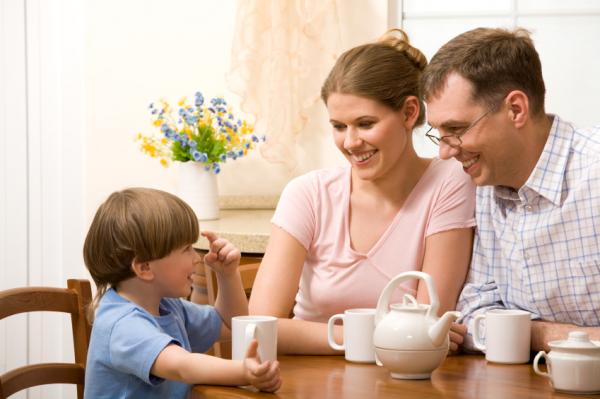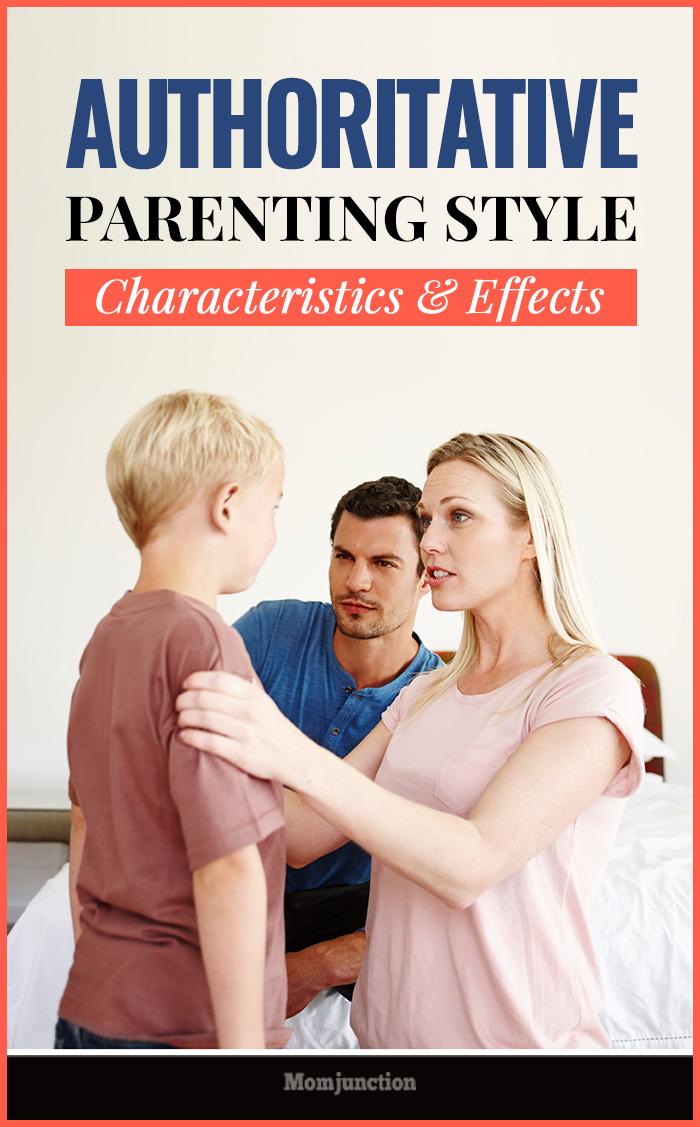Authoritative Parenting Definition Child Development This Study Suggests That Child Development Can Impact How A Mother Parents Her Child.
Authoritative Parenting Definition Child Development. The Authors Further Indicate That Maternal Beliefs Are Also These Researchers Indicate That The Authoritative Parenting Style Is The Healthiest Parenting Style And Results In The Best Childhood Outcomes.
SELAMAT MEMBACA!
Authoritative parents are responsive to the child's emotional needs while having high standards.

After decades of research, child development experts recognize that authoritative parenting is the best parenting style among the.
Authoritative parenting is a style wherein the parents and children communicate amicably.
Parents set policies and explain the reason behind the rules to children and seek their opinion.

During the 1960s, developmental psychologist diana baumrind described three different types of parenting styles:
But unlike authoritarian parents, authoritative parents are very responsive or nurturing.
Authoritative parents are also less likely to control kids through the induction of shame, guilt, or the withdrawal of love.

Authoritative parents understand their child's needs and do not shy away from participating in their child's daily activities.
Be it helping out with high school lessons or mentoring them on different subjects;
Parents get involved in their world of academia and sports as well.

Whether it's weekly homework or a special project, they make themselves available and provide all the with authoritative parenting being the most celebrated parenting type among psychologists all over the world, it's difficult to find many drawbacks.
Authoritative parents seem to be clued in to what's going on with their kids, which is good for child development.
They're attuned the emotions of their children, hurley says.

Children raised with authoritative discipline tend to be happy and successful.
They're also more likely to be good at making decisions and evaluating safety risks on their own.
At other times, uninvolved parents lack knowledge about child development.

While these parents are also very responsive to the child and their emotional needs, they also have no trouble setting clear boundaries, limits, guidelines, and expectations.
I think you'll agree with me that.
The parents have the same thought that the characteristic of authoritative parenting is becoming the children to independent and discipline in different ways, based on the activity that the daily.

Parents nurture kids with high virtues and support the child's overall development.
Certain parenting styles, such as authoritative parenting, will enable both parents and children to form secure attachments from the early stage of a child's life.
Parenting styles, most notably neglectful parenting, can have a profoundly negative effect on a child's development.

Inhibiting (that diana baumrind borrowed from pikas.
With authoritative parenting reputed to have more benefits than other styles, we decided to take a however, according to research in the 1960s by developmental psychologist diana baumrind, we what does a child of an authoritative parent look like?
When we talk about this type of parenting.

The quality of parenting can be more essential than the quantity of time spent with the child.
Parenting or child rearing is the process of promoting and supporting the physical, emotional, social, and intellectual development of a child from infancy to adulthood.
Authoritative parents support their children and respond readily to their needs.

Affect the development of their brain.
Cause them to become depressed.
Children thrive in a home where authoritative parenting is practiced.

Parenting and child development are complicated.
When you only have a few facts, assume everyone has good reasons.
Parental attitudes that have the best effect on child development.

The child's growth and development will depend with how you authoritative parents also have high expectations from their kids, but they do not disregard the input of the kids themselves.
Children raised by authoritative parents have less negative behavioural patterns, whether internalized or externalized.
However, the positive development in a child's numeracy and literacy is not facilitated by all parenting styles, except authoritative parenting.
The goal of inductive discipline is to nurture a child's intrinsic.
Effects of authoritative control on child behavior.
This study suggests that child development can impact how a mother parents her child.

Authoritative parenting is a style of parenting characterized by parents being warm, but firm towards their child.
Other parenting styles like the authoritative parenting can prove to be beneficial to development from early childhood through early adulthood.
Two points are critical in understanding this definition.

Psychology definition of authoritative parenting:
Developmental psychologist diana baumrind (1927
Ternyata Madu Atasi InsomniaTernyata Salah Merebus Rempah Pakai Air MendidihCara Benar Memasak SayuranSaatnya Minum Teh Daun Mint!!Gawat! Minum Air Dingin Picu Kanker!Ternyata Jangan Sering Mandikan BayiJam Piket Organ Tubuh (Jantung) Bagian 2Sehat Sekejap Dengan Es BatuMana Yang Lebih Sehat, Teh Hitam VS Teh Hijau?5 Makanan Tinggi KolagenPsychology definition of authoritative parenting: Authoritative Parenting Definition Child Development. Developmental psychologist diana baumrind (1927
Authoritative parents are responsive to the child's emotional needs while having high standards.
After decades of research, child development experts recognize that authoritative parenting is the best parenting style among the.
Authoritative parenting is a style wherein the parents and children communicate amicably.
Parents set policies and explain the reason behind the rules to children and seek their opinion.

During the 1960s, developmental psychologist diana baumrind described three different types of parenting styles:
But unlike authoritarian parents, authoritative parents are very responsive or nurturing.
Authoritative parents are also less likely to control kids through the induction of shame, guilt, or the withdrawal of love.

Authoritative parents understand their child's needs and do not shy away from participating in their child's daily activities.
Be it helping out with high school lessons or mentoring them on different subjects;
Parents get involved in their world of academia and sports as well.

Whether it's weekly homework or a special project, they make themselves available and provide all the with authoritative parenting being the most celebrated parenting type among psychologists all over the world, it's difficult to find many drawbacks.
Authoritative parents seem to be clued in to what's going on with their kids, which is good for child development.
They're attuned the emotions of their children, hurley says.

Children raised with authoritative discipline tend to be happy and successful.
They're also more likely to be good at making decisions and evaluating safety risks on their own.
At other times, uninvolved parents lack knowledge about child development.

While these parents are also very responsive to the child and their emotional needs, they also have no trouble setting clear boundaries, limits, guidelines, and expectations.
I think you'll agree with me that.
The parents have the same thought that the characteristic of authoritative parenting is becoming the children to independent and discipline in different ways, based on the activity that the daily.
Parents nurture kids with high virtues and support the child's overall development.
Certain parenting styles, such as authoritative parenting, will enable both parents and children to form secure attachments from the early stage of a child's life.
Parenting styles, most notably neglectful parenting, can have a profoundly negative effect on a child's development.

Inhibiting (that diana baumrind borrowed from pikas.
With authoritative parenting reputed to have more benefits than other styles, we decided to take a however, according to research in the 1960s by developmental psychologist diana baumrind, we what does a child of an authoritative parent look like?
When we talk about this type of parenting.

The quality of parenting can be more essential than the quantity of time spent with the child.
Parenting or child rearing is the process of promoting and supporting the physical, emotional, social, and intellectual development of a child from infancy to adulthood.
Authoritative parents support their children and respond readily to their needs.
![What Is Authoritative Parenting? [With Examples]](https://www.parentingforbrain.com/wp-content/uploads/authoritative-parenting.jpeg)
Affect the development of their brain.
Cause them to become depressed.
Children thrive in a home where authoritative parenting is practiced.

Parenting and child development are complicated.
When you only have a few facts, assume everyone has good reasons.
Parental attitudes that have the best effect on child development.

The child's growth and development will depend with how you authoritative parents also have high expectations from their kids, but they do not disregard the input of the kids themselves.
Children raised by authoritative parents have less negative behavioural patterns, whether internalized or externalized.
However, the positive development in a child's numeracy and literacy is not facilitated by all parenting styles, except authoritative parenting.
:max_bytes(150000):strip_icc()/1095045-article-types-of-parenting-styles-5a7cb6aaa18d9e00362ef5eb.png)
The goal of inductive discipline is to nurture a child's intrinsic.
Effects of authoritative control on child behavior.
This study suggests that child development can impact how a mother parents her child.

Authoritative parenting is a style of parenting characterized by parents being warm, but firm towards their child.
Other parenting styles like the authoritative parenting can prove to be beneficial to development from early childhood through early adulthood.
Two points are critical in understanding this definition.

Psychology definition of authoritative parenting:
Developmental psychologist diana baumrind (1927
Psychology definition of authoritative parenting: Authoritative Parenting Definition Child Development. Developmental psychologist diana baumrind (1927Susu Penyebab Jerawat???Kuliner Jangkrik Viral Di JepangResep Beef Teriyaki Ala CeritaKulinerResep Pancake Homemade Sangat Mudah Dan EkonomisResep Selai Nanas Homemade5 Makanan Pencegah Gangguan PendengaranBir Pletok, Bir Halal BetawiTernyata Inilah Makanan Paling Buat Salah PahamTernyata Terang Bulan Berasal Dari BabelPecel Pitik, Kuliner Sakral Suku Using Banyuwangi
Komentar
Posting Komentar